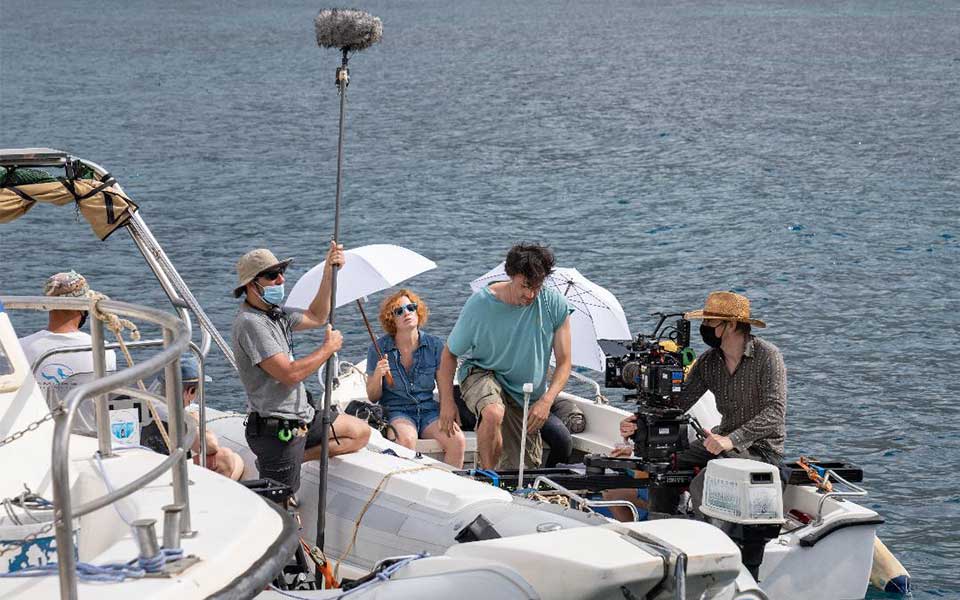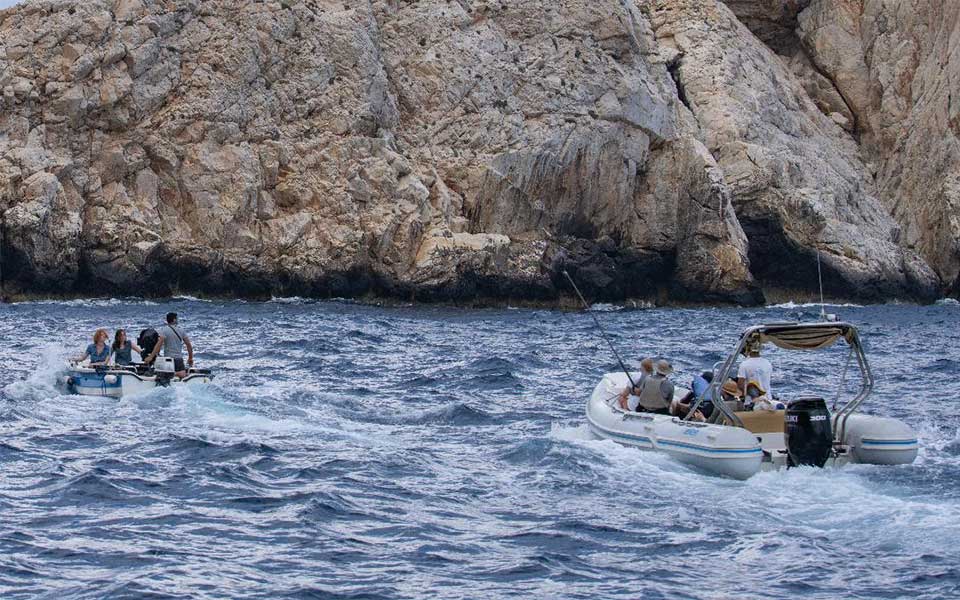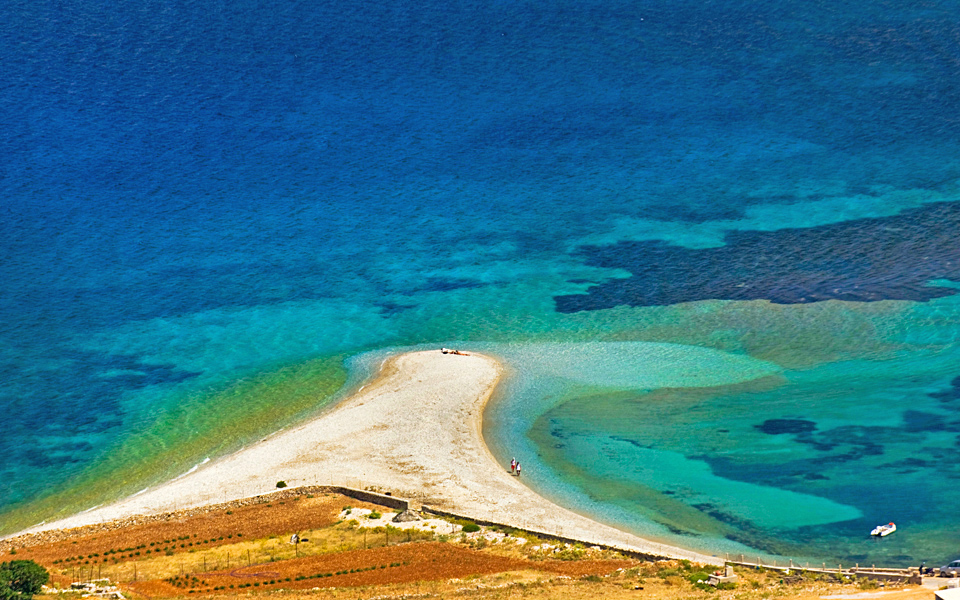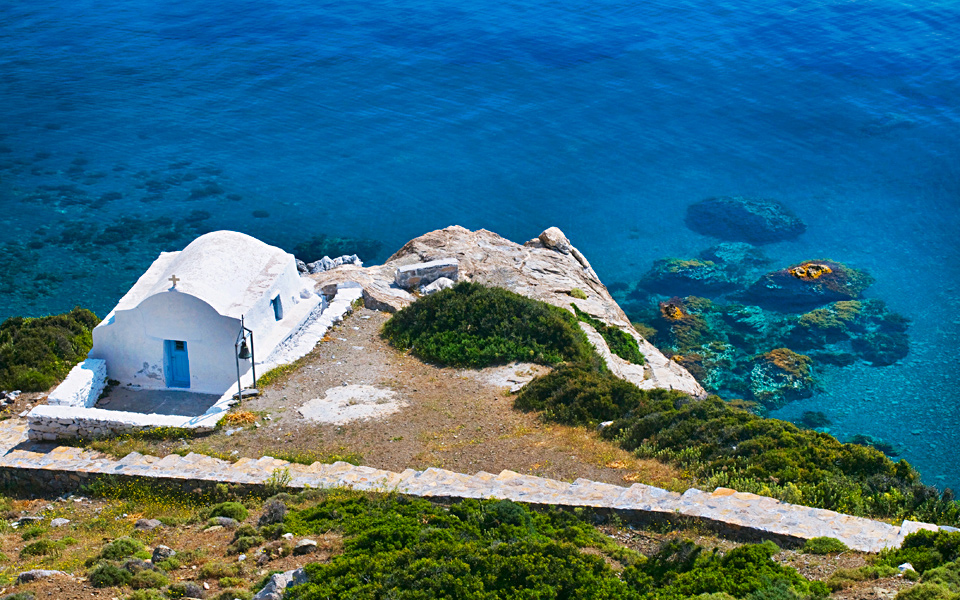Up until the end of the 1980s, the Cycladic island of Amorgos was the destination of choice mainly for recluses and hippies, what with it being so far away from the Greek mainland and with such infrequent (and ponderously slow) ferry connections.
But then in 1988 Luc Besson happened; his mesmerizing film The Big Blue put Amorgos on the map, and travelers began to seek out the otherworldly spots they had seen in the film (made even more captivating by the mesmerizing soundtrack of Éric Serra).
Despite its overnight rise to fame, however, the island did not succumb to mass tourism and has managed to maintain its authenticity; to this day, it still attracts a more alternative and bohemian crowd – and, occasionally, film productions seeking to capture some of the same magic that enchanted Besson.

On June 22, Amorgos welcomed the cast and crew of a new German-Greek-Italian co-production, who will spend three weeks shooting a film adaptation of the German best-selling novel, Daughters (or Tochter in German) by Lucy Fricke. The book has been described by the German press as a “road movie in book form, so comic and touching that you burst at once into laughter and tears.”
Produced by Germany’s Heimatfilm in cooperation with Simila of Italy – where filming also takes place – and Greece’s Heretic, the film is also “the first international production to begin shooting in Europe after the pandemic, with a film crew traveling across borders,” Greek co-producer Giorgos Karnavas of Heretic said during a recent webinar organized by the Hellenic Film Commission of the Greek Film Centre.
“Our cast and crew were among the island’s first, if not its first, visitors this summer and the locals were very excited to see us. Amorgos was, in fact, one of the first film-friendly locations in Greece, though admittedly Greek local communities are generally more than happy to host film crews and always eager to help.”

The film of the book Daughters (which will be released internationally under a different title yet to be announced) tells the story of two childhood friends, Martha and Betty, who set off from Berlin for an assisted suicide clinic in Switzerland. In the back seat of the car is the terminally ill father of one of the women who wished to end his life. Or so they think. Because the trip will take some surprising turns, leading them to not only explore Greece but also their own families and sense of identity.
“The book was written on the island of Amorgos and we are in fact shooting in the actual house where it was written, in the village of Aegiali ” said Karnavas. “Our director is Nana Neul, who is considered very hot in Germany right now, and the cast will include Birgit Minichmayr in the starring role, who regularly appears in productions at the wonderful Burgtheater of Vienna, Alexandra Maria Lara, who you may know from films like Control, Youth Without Youth and The Reader, as well as Andreas Konstantinou and Michalis Sarandis, two very talented Greek young actors.”

© Clairy Moustafellou
The film is funded by Film und Medienstiftung NRW, BKM, and DFFF in Germany; MIBAC in Italy; and the National Centre of Audiovisual Media and Communication (ΕΚΟΜΕ) in Greece, from which the movie will receive funds in the form of a “cash rebate”.
And this Greek filmic summer has only just begun. Following in the footsteps of Daughters, two more international film productions also benefiting from the cash rebate incentive are about to begin shooting in Greece.
On the 13th of July, a French-Greek co-production called On Sourit Pour La Photo (meaning “say cheese”), will begin shooting on the island of Aegina and the Athenian Riviera, to be followed in early September by Swedish Palm d’Or winner Ruben Östlund, who has also chosen Greece to film a large part of his new movie Triangle of Sadness, starring Woody Harrelson, co-produced with Greek company Heretic.












